Downside of alternative education
Education in dire straits
The regulatory environment created by the SA Schools Act (SASA) in 1996 failed to provide the most vulnerable in our society with a quality basic education. It merely replaced race based inequality with class-based inequality.
- The majority of children attend dysfunctional public schools.
- Well-functioning model-C schools are affordable to the middle class, but increasingly inaccessible with long waiting lists.
- Private schools are generally not affordable to the middle class and poor families.A
Alternative education grows exponential
As SASA failed, civil society developed alternative education solutions including home education and community based learning centres or cottage schools. They follow a diversity of educational approaches (e.g. unit studies, classical education, Montessori, unschooling, etc.) based on totally different philosophies than mainstream education. This diversity offers solutions for rich and poor, gifted children and children with special needs. It works equally well in high density metropolitan areas and rural areas. It can be adapted to the needs of families with two parents, broken families, extended families and child led families and restores families and communities.
This movement grew from a handful of homeschooling families in 1996 to an estimated 140 000 home learners in 2019 and probably similar number of learners in community based learning centres.
Benefits to South Africa
Alternative education is not only good for the learners that receive it, but also for learners in mainstream education.
- Alternative education already saves the state an estimated R4,6 bn per annum. As alternative education grows, this can increase exponentially, making funds available to fix dysfunctional public schools.
- An estimated 280 000 learners in alternative education already reduces class sizes and provides access to model-C schools to thousands of learners, especially in the Western Cape and Gauteng metro’s.
- Alternative education can be customized to make quality education available in rural areas and accommodate children with special needs. It makes mother tongue education available to all children, even in languages that are not official languages in South Africa.
- Alternative education can grow without requiring additional infrastructure and teacher training.
- Alternative education is an innovation hub developing solutions for the future.
Downside of alternative education
However, although alternative education is good for learners, it is not good for all South Africans. The education establishment believes in a centralized uniform state controlled education system. This provides stable jobs to unionized teachers. It enables the state to ensure that the state can transfer it’s values to the next generation, so that there are no surprises in elections. On the other hand, supporters of alternative education believe in a decentralized, diverse and parent controlled system. This however can cause job losses for unionized teachers, which in turn can cause labour strikes and disruption of public schools.
Many children struggle to cope with the school environment. To sit still for long periods of time, to focus in class and handle the stresses associated with high stake assessments. The pharmaceutical industry has developed various drugs that can help children to adapt to the school environment. In home education however, the environment can be adapted to the needs of the child, and there is no need for drugs anymore. A significant growth in home education can therefore have a negative effect on the pharmaceutical industry.
Currently, the Department of Basic Education centrally purchases textbooks from a small number of educational providers. If alternative education grows significantly, parents will choose from a variety of smaller educational providers, disrupting the market for education products and services. This could also cause job losses and share price losses for established players.
Conflict ahead
Alternative education has grown so much since 1996 that government acknowledges that it is too late to stop. Proposed legislative changes therefore attempt to make alternative education part of the formal school system, rather than outlawing it. Currently some estimates indicate that as little as 1% of home learners are registered with the state. To really make alternative education part of the formal school system will require a compliance of about well above 80%. To do this against the will of parents that think that it is in the best interest of their children not to be part of the formal school system will be a long uphill struggle with increasing levels of conflict.

Events
Legal & Research
Homeschooling and the law
Home schooling was recognized in 1996 in Section 51 of the SA Schools
+ ViewCentres
Homeschool ABC
Support
Curriculums
Frequently Asked Questions
-
Do home learners get homework?
In general all their schoolwork is homework and they do not get to do extra work in the afternoons. A tutor might give some extra work to complete...
-
How does homeschooling work?
Homeschooling is different for every family as it depend on the parents educational goals for their children Education is the development of the...
-
Is homeschooling legal in South Africa?
Yes. Since 1994, the right for parents to home educate their children was legalised in South Africa through the adoption of the new constitution. In...
-
Do I need to be a qualified teacher?
No. Research has found no correlation between the qualification of the parent and the academic performance of the child. Research shows that...
Has no content to show!



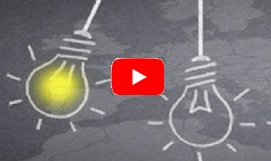




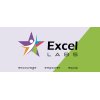
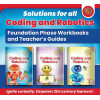
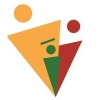
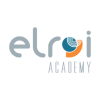
















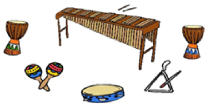


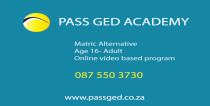
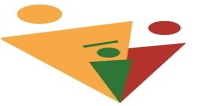

Comments 1
Hi,
Most of us are afraid to register home schooling with the state because the state is corrupt on all levels due to the nature of exploitative mentality on all aspects of administration: education, health/medicine, food, and law enforcement to name a few. You've successfully drawn the link between two of these in your article, namely education and pharmaceuticals, and I commend you for speaking out. Thank you.
In fact, it is people like you who have a significant influence and the backbone to stand up against the abuse of society by the leaders, that we can look up to as the small hope for the positive transformation of society for the future of our degenerating world. This is our hope against hopelessness. I solute your fearlessness, and wish to assist where we can, but without putting our children at rrisk.
With kind regards,
Yamuna Jivana Dasa
ykhandoo at webmail dot co dot za